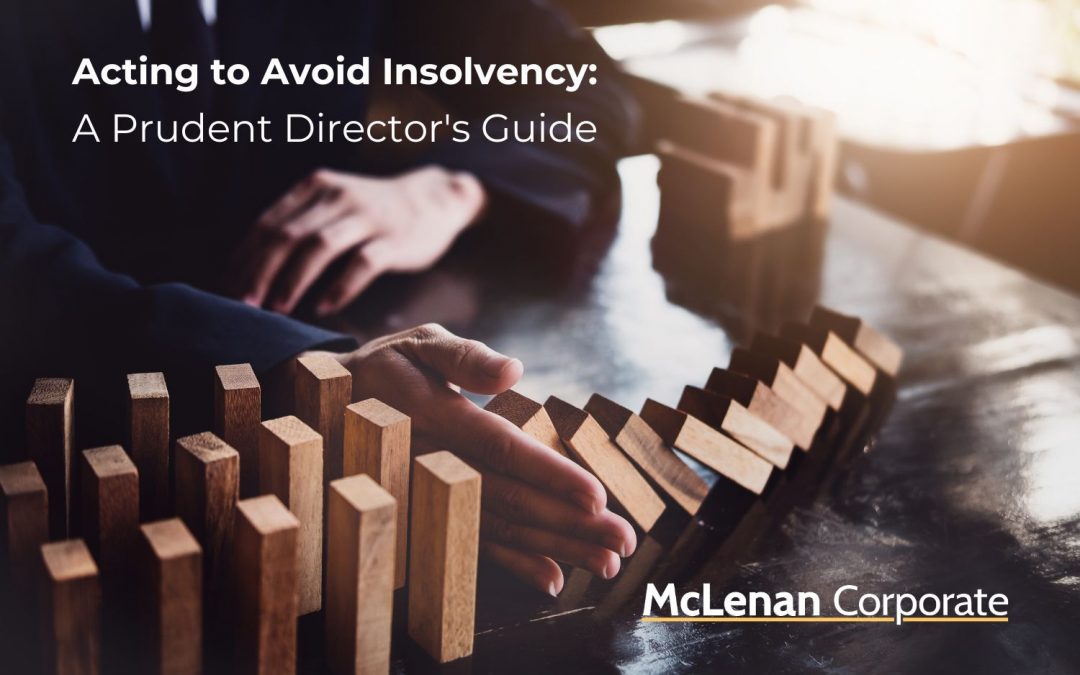When you’ve poured time, energy, and resources into building and nurturing a company, the very thought of it facing financial struggles can be devastating. Yet, in the challenging world of business, financial turbulence is not uncommon. While the spectre of insolvency can be daunting, understanding it and taking timely measures can often prevent a complete catastrophe.
What Exactly is Insolvency?
Let’s start by breaking down what insolvency actually means. In the UK, a company is deemed insolvent when it can’t meet its financial obligations in a timely manner or when its total liabilities outweigh its total assets. At its core, it’s a state of financial imbalance where the scales tip away from sustainability.
But here’s a crucial point: insolvency doesn’t always equate to the end of the road for your business. It’s a warning sign, a red flag, if you will, urging you to stop and assess. And while it’s a situation that demands immediate attention, it doesn’t necessarily mean your company should cease trading. However, before making such a decision, it’s imperative to seek professional advice.
The Notion of Avoidable Insolvency
Interestingly, not all insolvencies are inevitable. Every year, numerous UK companies find themselves on the brink of insolvency, which, with earlier intervention, could potentially have been sidestepped. This begs the question: If some insolvencies are avoidable, how can businesses discern and act upon the warning signs in time?
Proactive Measures to Dodge the Insolvency Bullet
There’s a saying that prevention is better than cure, and in the world of business finance, this couldn’t be truer. By being proactive, directors can significantly reduce the risk of their company becoming insolvent. Here are some actionable steps to consider:
1. Understand the Basics from Day One: Before diving into the business world, equip yourself with foundational knowledge. It might seem elementary but understanding the basics of running a company can significantly impact its longevity and financial health.
2. Professional Guidance is Gold: From the moment you conceive your business idea to its daily operations, seek advice from professionals. Whether it’s financial advisers, accountants, or industry consultants, their expertise can help you navigate potential pitfalls.
3. Perform Your Directorial Duties with Due Diligence: Being a director is not just a title; it comes with a set of responsibilities. Abide by them, and you significantly minimise your risk of avoidable insolvency.
4. Maintain Financial Records Meticulously: This cannot be stressed enough. Accurate and up-to-date financial records not only give you clear visibility of your business health but also help in early detection of potential problems.
5. Stay on Top of Tax Obligations: Tax liabilities can sneak up, and non-payment can be a significant strain on your cash flow. Ensure you’re aware of all your tax obligations and adhere to deadlines.
6. Detect Early Signs and Act Promptly: Continuous monitoring of financial indicators can give early warning signs. Some common signs include consistent cash flow issues, mounting unpaid bills, or declining profits. Should you spot these, don’t delay in seeking advice.
7. Seek Expert Advice During Financial Distress: If the financial waters get choppy, don’t try to navigate them alone. Expert guidance during such times can be the difference between your company’s revival and its downfall.
The Power of Early Intervention
When a storm is brewing on the horizon, it’s prudent to prepare rather than hope it’ll pass by without damage. Similarly, when financial indicators wobble, early professional intervention can equip you with strategies and tools to potentially avoid insolvency.
Conclusion
While insolvency is a daunting prospect for any director, understanding its nature and being proactive in company management can help avert it. By maintaining transparency in finances, fulfilling directorial duties with integrity, and not hesitating to seek professional guidance, directors can steer their companies away from the precipice of insolvency and towards a more secure financial future.

